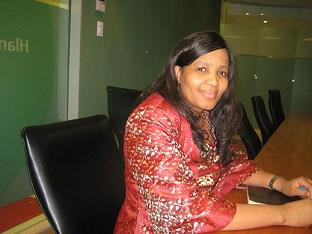
Parliamentary committee members are concerned that state broadband company Broadband Infraco (BI) may be allotting more investment to neighbouring countries than to some provinces, despite SA's poor broadband penetration rate.
One of the company's main objectives is to expand the availability and affordability of access to electronic communications to under-serviced areas.
Communications minister Dina Pule recently said the cost of broadband in SA is unaffordable for the vast majority of citizens. She added that studies regarding broadband in SA show household penetration is 12%. Among households earning less than R5 000 per month and rural communities, the average penetration is less than 1%.
However, members of the select committee on labour and public enterprises questioned BI's allocation of funds to its investment in Botswana since it may be more than that invested in some provinces.
Local charity
BI has connectivity with five of SA's six neighbouring countries. It is currently in connectivity discussions with key operators in the sixth, Botswana.
Members said that, while SA does need to contribute to the development of the Southern African Development Community (SADC), charity begins at home.
However, BI says the committee misunderstood, as it does not have a specific Botswana project investment.
The company adds that it connects points of presence at South Africa's borders, promoting regional interconnectivity. "This promotes SADC integration through cross-border collaboration with licensed operators in those neighbouring jurisdictions. An interconnected SADC region with improved communications ability will provide employment creation opportunities in South Africa and in neighbouring countries."
Members also questioned the rollout focus placed on wealthier provinces that already have unfair advantages over the rest.
Low appetite
Estimated costs for the company's investment programme show R244.2 million allocated to the Eastern Cape; R401.4 million for Mpumalanga and Limpopo; R833.8 million for Gauteng, Free State, KwaZulu-Natal and the Western Cape; R364.3 million for the Northern Cape; and R125.2 million for the North West province.
BI CEO Puleng Sejanamane said at the committee meeting last week that the investment in Botswana is still informed by the requirements of SA's provinces. Botswana is simply the end-point of the connectivity lines of certain provinces, which is why access to the country is being developed.
She also said the Eastern Cape, Mpumalanga and Limpopo provinces are first-priority regions for BI since there is economic activity in these regions that needs to be supported.
Broadband Infraco said the private sector has very low appetite for these provinces, because of the lower economic activities, and the roll out of broadband here needs to be driven by a socio-economic benefit.
Troublesome two
It also said the Northern Cape and North West provinces do not represent a viable commercial business case.
Sejanamane said there are significant challenges in these two provinces, where citizens and small enterprises are being cut off from the knowledge economy. Innovative ways are needed to roll out broadband access in these areas, like the use of wireless or mobile infrastructure rather than traditional fibre. "With the low population densities, as well as the low GDP, alternate technologies have to be explored."
BI said it previously tended to provide access according to its licence obligations, rather than rural development considerations.
Funding please
BI CFO Ramasela Magoele said the company approached the Universal Service and Access Fund (USAF) for financial assistance, on the grounds that it would be deploying funds towards broadband access in areas of low economic activity.
However, members questioned the appeal, saying it may divert assistance from other urgent rural projects.
The USAF receives funds from licensed telecommunications providers and broadcasters specifically to fulfil universal access obligations in under-serviced areas. Approximately 98% of the fund was unspent this year.
Magoele said BI turned to the USAF, because it is often difficult to get commercial banks to invest in its developmental projects, owing to the low return on capital these projects offer.
In addition to the USAF, the company also reached out to the Industrial Developmental Corporation. Commercial banks are usually approached only for customer-related projects.
Building relationships
For 2013/14 to 2016/17, five specific provincial projects have been planned, as well as a project aimed at technology lifecycle management.
Aspects of the current network need to evolve to be in line with changing Internet protocol, and backup systems need to be strengthened, said BI.
Magoele added that the combined project expenditure for the next five years is R4.03 billion.
In addition to the estimated costs for the provincial investments, customer expansion will cost R741 million. It addresses BI's strategic engagement with the private sector, to increase access in certain provinces.
BI has partnerships in the pipeline with the Passenger Rail Agency of SA and the SA National Roads Agency. It also has a team of engineers and salespeople who are developing relationships with operators in SADC.
Continuous challenges
Total replacement or upgrade of BI's network in all provinces will cost R1.3 billion.
It needs to refurbish its outdated technology, to redesign a network that had initially been based on a single customer's requirement in order to better fulfil its mandate in areas without market efficiency, and to address the critical and industry-wide shortage of ICT skills in SA.
The entity said these are some of the ongoing challenges it faces.
Last year, BI received a qualified audit, with R151 million in irregular expenditure discovered. This year, the audit again revealed irregular expenditure, now worth R3.9 million. However, the company achieved an unqualified audit for the 2012 financial year.
The company added that some of BI's past expenditure irregularities involved board members, and significant changes had since been made to the leadership of BI, including the recent hiring of the current CEO.
Share